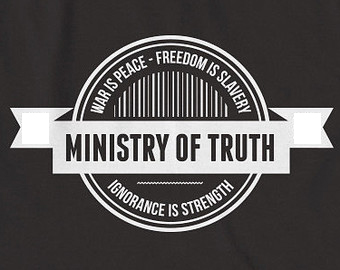
The world has been in trouble before. Every century has had its share of discord, warfare, violence and mayhem, punctuated by periods of creative flowering, knowledge growth and cultural insight. That we find ourselves once again riven by conflict, feelings of instability and worries about the future is not surprising, but though this cycle seems repetitive, the conditions underlying this particular swing of the pendulum are different than any that have come before.
Strains of dissatisfaction have emerged periodically in most every century, but never before have they converged within a system of globalized communication such as we have today. This electronic ether, a cloud of information technology permeating all aspects of human life and within which we now are immersed, allows the fractures in society to propagate at near light-speed. This process of fragmentation is enabled by the unity of the electronic ether; the integration that globalized communication has engendered also engenders its own disintegration. Though the information net spreads powerfully across the globe, so too do the fragmentary nodes that tie together disparate parts of human society.
The unexpected result of our globalized communications net has been the increased power of fragmented nodes. We see this in the rise of nationalism, fundamentalism and identity politics; we are at once global humanity as a whole, set within the confines of planet Earth’s environment as well as self-defined communities of interest, separated from each other by religious and ethnic differences, some historical and others contemporary.
This problem is compounded by an intellectual dilemma best seen in the lingering effects of post-modernism; we have lost consensus about objective reality. In other periods, for example at the beginning of the 20th century, the nature of objective reality also came under question. The trauma of World War One unleashed a surge of psychological uncertainty; the arts and sciences sliced and diced common sense and perception to a point beyond understanding. Impressionism gave way to cubism, and finally to abstract expressionism, leaving traditional conceptions of figurative and landscape painting behind. Relativity and quantum theory blew the Newtonian conception of the universe to smithereens. These powerful ideas spread, but it took time.
Today the same process of redesigning objective reality is occurring, but the time to adapt and process the ideas and implications of such changes has collapsed. The speed of the etherized communications network forces information down the gullet of human society too quickly; there’s no time to digest information before the next surge of data is shoveled our way. The “news crawl” at the bottom of the chattering TV screen is analogous to our overwhelming psychic experience; it’s impossible to absorb everything forced upon us.
This poses particular dangers. The mood of isolationism spreading across the world is a predictable response to increasingly globalized assaults on tradition and culture, but in a world quickly getting overheated, both politically and literally, finding refuge from rumor, deception and “alternate facts” has become nearly impossible. Unlike the ancient Mayans confronting the face of rapid change, we cannot simply disappear back into the jungle.
Computers and The Cloud increase speed and density of information. We’ve lost our margin of error – time to think and moderate our response. The world has seen and survived lies and heated rhetoric before, but never so much so fast and so often.